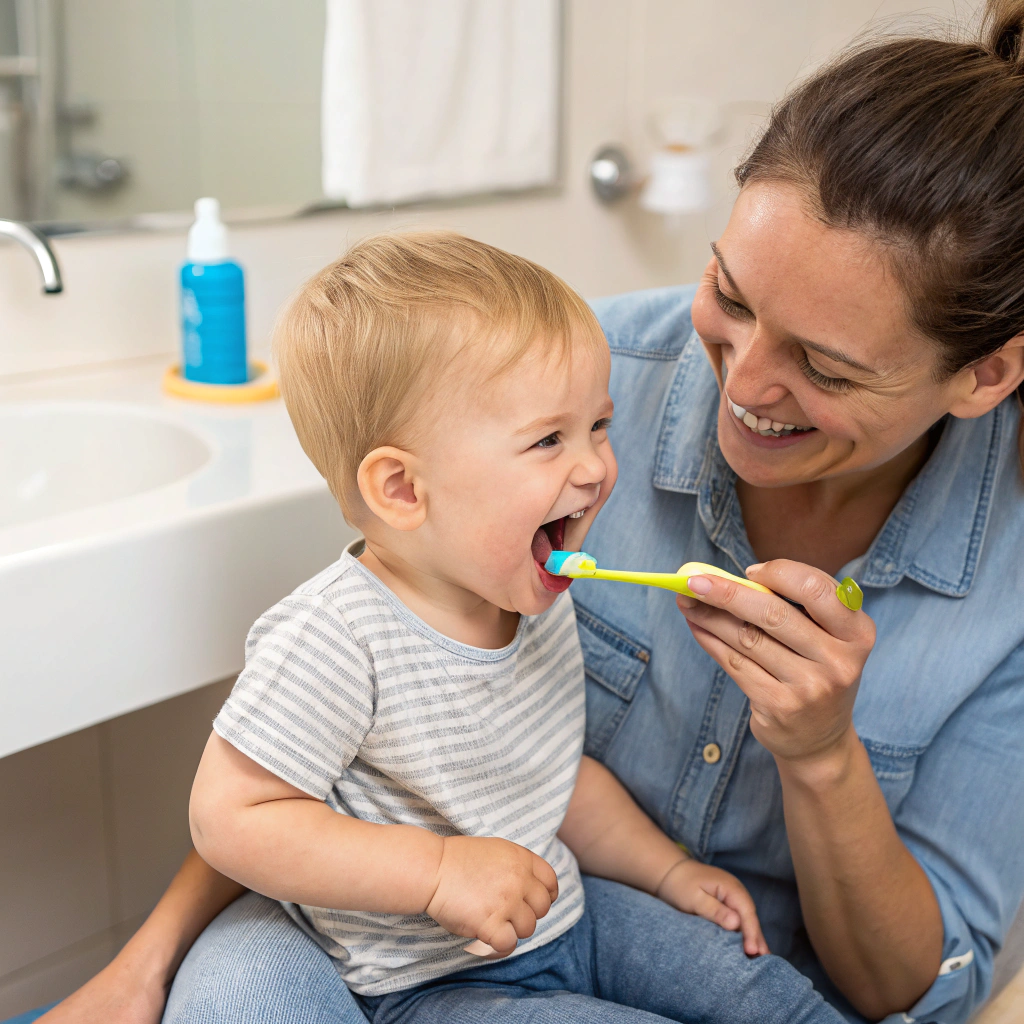Caring for baby teeth is crucial for a child’s overall health and development. Even though they are temporary, baby teeth play a vital role in speech development, chewing, and guiding permanent teeth into place. Establishing a good oral hygiene routine early helps prevent cavities and sets the foundation for lifelong healthy habits. From gentle brushing techniques to diet tips and regular dental checkups, learning how to care for your baby’s teeth ensures a bright and healthy smile.
Why Baby Teeth Are Important
Many parents assume that baby teeth don’t need much attention since they eventually fall out. However, they serve several essential functions:
- Help with speech development – Baby teeth assist in forming sounds and clear speech.
- Aid in proper chewing and digestion – Healthy teeth help babies eat solid foods effectively.
- Guide permanent teeth – They hold space for adult teeth, preventing misalignment issues.
- Prevent infections and pain – Poor oral hygiene can lead to cavities, infections, and discomfort.
When to Start Baby Teeth Care
Oral care should begin before the first tooth appears. Parents can start by cleaning their baby’s gums with a soft, damp cloth. As soon as the first tooth erupts, brushing should begin using a small, soft-bristled toothbrush and a tiny amount of fluoride toothpaste.
Brushing and Flossing Tips for Baby Teeth
1. Choosing the Right Toothbrush and Toothpaste
- Use a soft-bristled toothbrush with a small head designed for babies.
- Choose fluoride toothpaste—use a rice-sized amount for infants and a pea-sized amount for toddlers.
2. Proper Brushing Technique
- Gently brush in small circular motions, covering all teeth and gums.
- Brush twice a day—once in the morning and once before bed.
- Encourage your child to spit out toothpaste but avoid rinsing with water to keep the fluoride effect longer.
3. When to Start Flossing
- Begin flossing when two teeth touch each other to remove food particles.
- Use child-friendly flossers to make the process easier.
Healthy Eating Habits for Strong Baby Teeth
Diet plays a crucial role in baby teeth care. Here’s how to protect your child’s teeth through nutrition:
- Limit sugary snacks and drinks – Avoid frequent consumption of juice, candies, and sugary cereals.
- Encourage water and milk – Water is the best drink for hydration, and milk strengthens teeth with calcium.
- Give healthy snacks – Cheese, yogurt, fruits, and vegetables support strong teeth and gums.
The Role of Regular Dental Checkups
- Schedule your child’s first dental visit by their first birthday or within six months after the first tooth appears.
- Regular checkups help detect early signs of cavities and ensure proper oral development.
- Pediatric dentists can provide fluoride treatments and protective sealants for extra cavity prevention.
Preventing Common Dental Problems in Babies
- Avoid bottle feeding at bedtime – Prolonged exposure to milk or juice can cause “baby bottle tooth decay.”
- Discourage prolonged pacifier use and thumb sucking – These habits can lead to misaligned teeth.
- Teach good oral hygiene habits early – Make brushing a fun and regular part of their daily routine.
Conclusion
Taking care of baby teeth is essential for lifelong oral health. By following proper brushing techniques, encouraging a healthy diet, and scheduling regular dental visits, parents can ensure their child’s teeth stay strong and cavity-free. Start early, stay consistent, and make dental care a positive experience to set the foundation for a healthy smile.

